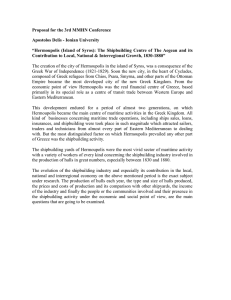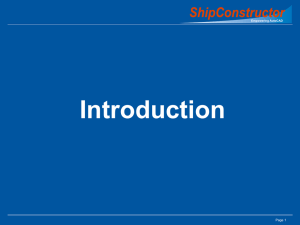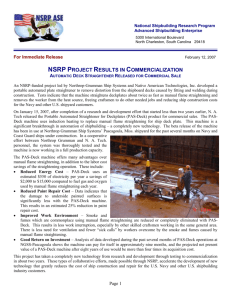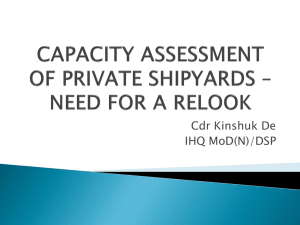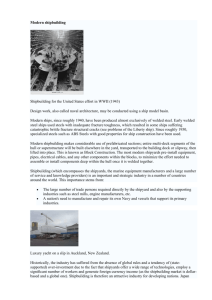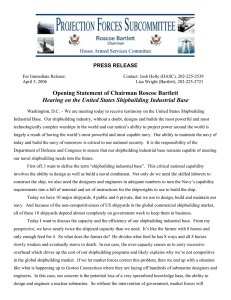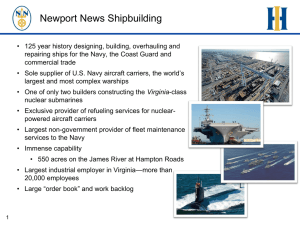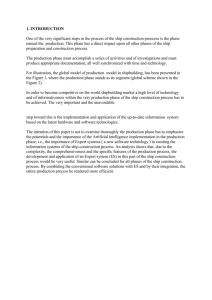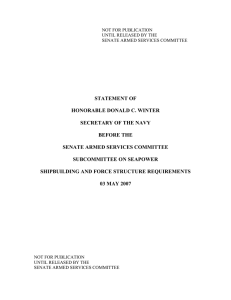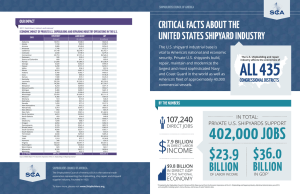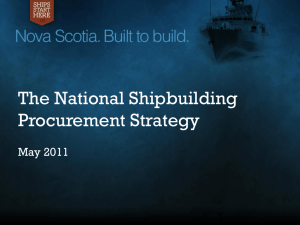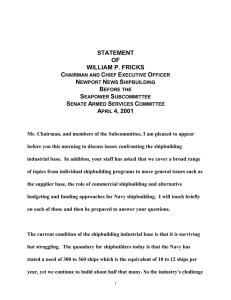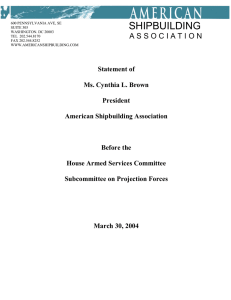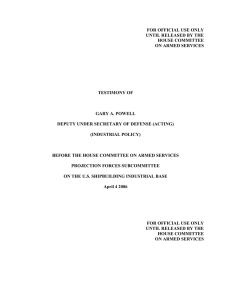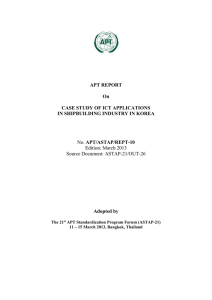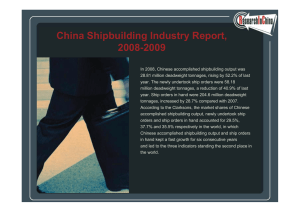Shipbuilding & Ship Repair Business Management (PORT 618)
advertisement
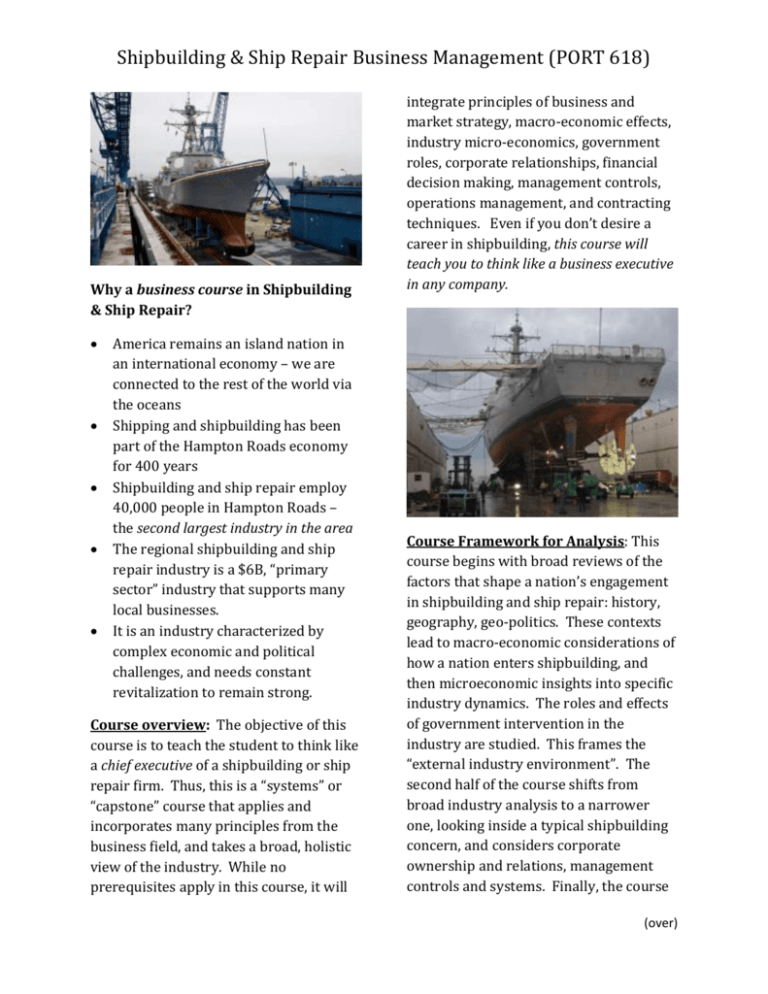
Shipbuilding & Ship Repair Business Management (PORT 618) Why a business course in Shipbuilding & Ship Repair? America remains an island nation in an international economy – we are connected to the rest of the world via the oceans Shipping and shipbuilding has been part of the Hampton Roads economy for 400 years Shipbuilding and ship repair employ 40,000 people in Hampton Roads – the second largest industry in the area The regional shipbuilding and ship repair industry is a $6B, “primary sector” industry that supports many local businesses. It is an industry characterized by complex economic and political challenges, and needs constant revitalization to remain strong. Course overview: The objective of this course is to teach the student to think like a chief executive of a shipbuilding or ship repair firm. Thus, this is a “systems” or “capstone” course that applies and incorporates many principles from the business field, and takes a broad, holistic view of the industry. While no prerequisites apply in this course, it will integrate principles of business and market strategy, macro-economic effects, industry micro-economics, government roles, corporate relationships, financial decision making, management controls, operations management, and contracting techniques. Even if you don’t desire a career in shipbuilding, this course will teach you to think like a business executive in any company. Course Framework for Analysis: This course begins with broad reviews of the factors that shape a nation’s engagement in shipbuilding and ship repair: history, geography, geo-politics. These contexts lead to macro-economic considerations of how a nation enters shipbuilding, and then microeconomic insights into specific industry dynamics. The roles and effects of government intervention in the industry are studied. This frames the “external industry environment”. The second half of the course shifts from broad industry analysis to a narrower one, looking inside a typical shipbuilding concern, and considers corporate ownership and relations, management controls and systems. Finally, the course (over) Shipbuilding & Ship Repair Business Management (PORT 618) analyzes the process of ship acquisition, from customer requirements to design process to ship production and delivery. graduate level education, and can also be taken as a stand-alone continuing education course. As an interdisciplinary graduate course, the class also includes students from the Public Administration Program, Engineering Management Program, or Mechanical Engineering Program. Historically, 60% of the students have been MBA/MPA candidates. Student reviews: Course Themes • • • • • • • • Systems relationships & functional inter-relationships Politics & economics Influence of technology Timing of decisions and market dynamics Investor relations Process variation Business stability & volume Decision making & risk management Course delivery and technique: “Professional education tenor”; concept lectures, field trips, guest lecturers from industry leaders, case studies, mid-term and final exam. Each student is also assigned a “host” nation, and will become the class expert in that nation’s shipbuilding industry, and contribute presentation material accordingly. Course Logistics: PORT-618; no prerequisites required. Class commences on Thursday 14 January 2016, and meets each Thursday 7:10~9:50 until 28 April. This course provides 3 credit hours of “Very practical course – it helped me pull a lot of MBA classes together….” “Very interesting – I never realized the complexities in the business world until I took this class.” “The instructor pulled-off this defacto “capstone course” as well as, if not better than, the actual capstone course required in the MBA program.” “I don’t plan on pursuing a career in this industry, but this course made me understand the business world dynamics better than any other at ODU.” “Fun class; experienced, energetic and enthusiastic instructor keeps it fresh and interesting.” “The adjunct instructor is not a formal faculty professor – he actually works in the business world, which brings a level of experience and pragmatism not usually seen in college academics. It was refreshing.”

